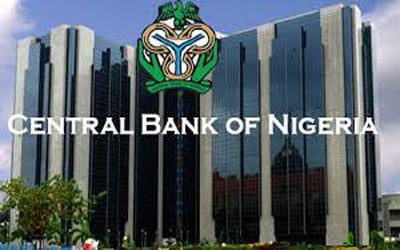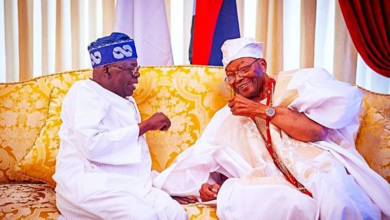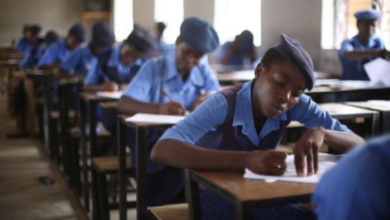Economy In Rare Credit Squeeze As CBN Continues With 20-Year-High Interest

- MPR raised to 15.5 per cent, highest in 20 years
- CBN to debit commercial banks to effect new CRR Thursday
- Adonri: Increase creates opportunity for FG to mop up local funds
- Job losses to worsen, experts warn
- Nigerians lament soaring food prices
- ‘Address supply-side shocks to check inflation’
It was another audacious response from the Monetary Policy Committee (MPC), yesterday, as it increased the benchmarked interest rate by another 150 basis points (bps) in a fell swoop to rein in extreme inflation and manage an uncertain economic outlook.
According to the guardian.ng, this latest decision came on the back of previous back-to-back 100 bps and 150 bps that brought the Monetary Policy Rate (MPR) to 14 per cent. The increase has effectively raised the rate to 15.5 per cent, about a 20-year high, according to searches conducted by The Guardian.
Going down memory lane, Nigeria’s MPR hit the highest point in the 1990s when it crossed 25 per cent. It slopped down to below 15 per cent and spiked again in 2002/2003, but remained below 20 per cent.
Before the recent aggressive tightening, the interest rate cooled off at 11.5 per cent from September 2020 when central banks across the world attempted to lower the cost of borrowing amid extra-ordinary expansionary monetary policies.
The interest rate poses danger for the real sector and the entire economy, which will have to bear the brunt of extra-high commercial interest rates. The maximum lending rate, according to the money market indicator gleaned from the Central Bank of Nigeria (CBN) stood at 18.5 per cent in August.
Yesterday, David Adonri, an investment banker, said the commercial rate could attempt to cross 30 per cent and effectively head to 35 per cent if the monetary authority continues to double down effect to check inflation.
Indeed, the CBN Governor, Godwin Emefiele, said via a communiqué to convey the hike yesterday that the MPC would be resolute in its efforts to bring inflation under manageable control.
Nigeria’s inflation has been uptick, hitting 20.5 per cent, close to 20-year high, last month. Experts have even argued that there is sufficient room for upside, as supply side constraints remain active.
Poor power supply, inefficient tax system, unpredictable foreign exchange rate and other challenges have left the country uncompetitive, having to depend on Asia and Europe for the most basic things.
But Adonri said the interest on bank deposits is a floodgate of large inflow into the banking sector, suggesting that lenders would have sufficient money to lend. Higher access to funds could mean cheaper money.
However, the money will not come cheap as CBN has also increased minimum interest rates on savings deposits to 30 per cent of MPR, meaning deposit money banks (DMBs) would henceforth pay as much as 4.66 per cent on deposits.
According to Adonri, private sector players would have to contend with an increasing crowding-out effect, as the going cost of borrowing will be unaffordable. He added that banks would be left with no option than to turn to the standing deposit facility (SDF) window of CBN and government bonds to offload their cash.
“This will eventually provide an opportunity for government to raise money to bridge its funding gap. This is because private sector operators cannot afford the interest rates banks will start charging going forward,” he said.
Besides the MPR, the MPC also increased the cash reserve ratio (CRR) from 27.5 per cent to 32.5 per cent. CRR, another liquidity squeezing tool, is the portion of depositors’ funds domiciled with CBN. Previously, experts have complained that Nigeria’s CRR is not dynamic and that CBN ought to adjust the figures on a real-time basis to avoid a situation where banks are over-debited.
Already, the CBN boss has directed banks to fund their accounts on Thursday to enable it debit them to balance up the new CRR demand.
“We have increased the CRR and we expect that this decision must be seen to be potent and must achieve the effect that the MPC thinks it should achieve,” he said.
“We expect that all banks in Nigeria must fund their accounts by Thursday, after 48 hours, because we will debit them for CRR. We will take their CRR to a minimum of 32.5, which means we are going to take liquidity out of their vaults by Thursday,” Emefiele said.
Ahead of the meeting, a professor of economics and former Director General of the West African Institute for Financial and Economic Management (WAIFEM), Akpan Ekpo, had said the MPC has found itself in a dilemma with the United States and other advanced economies engaged in a rat race of rate review.
He told The Guardian that the MPR could hit 15 per cent after yesterday’s meeting not because it would make any difference in liquidity, but just to make the monetary authority keep pace with global trend.
“They will likely hike the rate like other central banks are doing. But it will not have any impact on lending. For central banks, when inflation is galloping, the tools they have are to adjust MPR. The MPC may do this once more.
“But it will not make any difference because Nigeria’s problems are more structural. If we can find a way to intervene in the real sector, we will get better result because the problem is not from the demand side. But CBN does not have a choice; it will follow what developed countries are doing,” Ekpo said.
Indeed, inflation, which was supposed to be negatively linked with interest rate, has been growing neck-and-neck with the latter. This, does not, however, suggest that the rising interest rate is worsening inflation, as causation and correlation are different things.
But like Ekpo, other experts have strongly recommended that the nation’s economic managers should focus on addressing constraints on the supply side. The lack of incentive in the tax system, inefficient power and insecurity are some of the factors weighing heavily on production, and several economists have called for bold attempts at fixing the issues.
Also, Chairman of Edgefield Capital Management Limited, Prince Gboyega Isiaka, said addressing challenges relating to access to funds, electricity and insecurity are necessary options for easing inflation.
Isiaka, a former governorship candidate of Ogun State, wondered why the emphasis is on sophisticated economic prescriptions that are “far ahead of the country’s stage of development when the real issues have not been addressed.”
The former investment banker was at loss on what the monetary policy intends to achieve with its aggressive liquidity tightening when the cost of funds is already near or over 30 per cent. He warned of the implication of the crowding out effect a further increase in commercial loans would have on the real sector.
On his part, a chartered accountant and economist, Kola Ogunleye, called for more discretion in the management of money supply and CBN’s special intervention funds.
With continued unrestrained importation and low local production, Ogunleye said the inflation rate still has sufficient upside room.
Interestingly, the stock market, priced at the bogus rate, increased ahead of the meeting. Last week, the market lost 0.9 per cent and 0.4 per cent the previous week even as analysts said investors could see more pains in the weeks ahead. Following the announcement, the market lost N15 billion or 0.06 per cent after the trading session yesterday.
Experts said investors would continue to move to the fixed income market and remain there till the monetary environment eases.
Former president of the Chartered Institute of Bankers of Nigeria (CIBN), Dr. Uche Olowo, said the interest rate hike would depress investors’ appetite for equities. He pointed out that interest rate hike increases the cost of borrowing and reduces consumers’ purchasing power and ability to spend.
According to him, this would ultimately impact negatively on the sales and productivity of listed firms and ultimately shrink their profitability.
“When the profit of these companies drops, it would have a multiplier effect on the movement of their stocks in the stock market. This is common with fast moving goods. Some sectors are resilient in this kind of scenario like the insurance stocks.
“With this development, they will increase their risk premium and their cash flow will rise automatically. Again, the energy and ICT stocks may not be affected because consumers must patronise these sectors and we may not see their stock prices dropping,” he said.
He argued that Nigeria may not witness improvement in Foreign Direct Investment (FDI) inflow because of the interest rate hike in the global economy, especially in the U.S. market.
Olowo, however, noted that the country would record increasing activities and high capital inflow in the diaspora space.
According to him, investors in the space would leverage the opportunity to fund transactions and other capital investments in Nigeria.
Five bank stocks – AccessCorp, United Bank for Africa, FBN Holdings, Sterling Bank and GTCO – fell in a sharp reaction to MPC’s decision.
The all share index (ASI) decreased by 27.87 points, representing a dip of 0.06 per cent to close at 49,161.45 points. Similarly, the market capitalisation lost N15 billion to close at N26.517 trillion.
The downturn was impacted by losses recorded in medium and large capitalised stocks, among which are Vitafoam Nigeria, Unilever Nigeria, Access Holdings, May & Baker Nigeria and GlaxoSmithKline Consumer Nigeria.
Also, market breadth closed negative, with 17 losers versus 14 gainers. Multiverse Mining and Exploration and Nigerian Exchange Group (NGX Group) recorded the highest price gain of 10 per cent each to close at N3.41 and N19.80 respectively, while Eterna followed with a gain of 9.91 per cent to close at N6.32 kobo.
The Chief Executive Officer at Dairy Hills Limited, Emmanuel Kelvin, explained that the decision would lead to further sell-offs in the equity capital markets and would further erode foreign portfolio investments looking for returns, that has shrunk from 53 in 2015 to 13 per cent.
“What this decision means is that banks now have to borrow at 16.5 per cent from CBN and deposit their funds at 8.5 per cent with the apex bank. Institutional investors will also have to adjust the rates at which they price risk for corporate and government bonds as capital is becoming expensive.”
Kelvin submitted that coupled with the headwinds around the lack of proper open banking structures to de-risk lending to the real sector, and multiple exchange rates, the industrial production output will drop, and the apex bank will continue the lazy approach of using MPR to align the inflation to the interest yield curve when in fact it should apply the tools at its disposal for decelerating inflation. This, he said, includes calling back the Ways and Means of lending, which violates the CBN Act of 2007.
The CBN overdraft is estimated at over N20 trillion. The World Bank and the International Monetary Fund (IMF) have called on the CBN to comply with the provisions of its Act in the management of the lending window.
Also speaking, the President of Project Management Institute in Nigeria, Paul Omugbe, argued that the government must now spend its resources wisely, saying, “the only way Nigeria can get out of this is when the government spends the necessary resources to put infrastructure in place to encourage local manufacturing. As long our import still exceeds our export, we will continue to have a squeeze in liquidity.”
Though the Federal Government has embarked on aggressive investment in infrastructure such as railways and roads, Omugbe argued that government must lay a high premium on power supply.
“Power is key. If you check the financial statement of every company in Nigeria, you will notice the high cost of power and service charge,” he stated.
The Chief Operating Officer (COO), Aiona Nigeria, manufacturer of LED and solar lights, Jide Pratt, said CBN is clutching at straws by increasing interest rates.
“When rates go up, they are increasing the cost of borrowing. Nigeria has a high number of bad debts because of the high cost of borrowing and as such, the profits from the business do not pay back the high-interest loans.
“What this means is Gross Domestic Product (GDP) will shrink because fewer businesses will borrow and demand will fall. The CBN uses this to fight inflation but if economic or trade activity falls, is it not an exercise in futility?” he asked.





